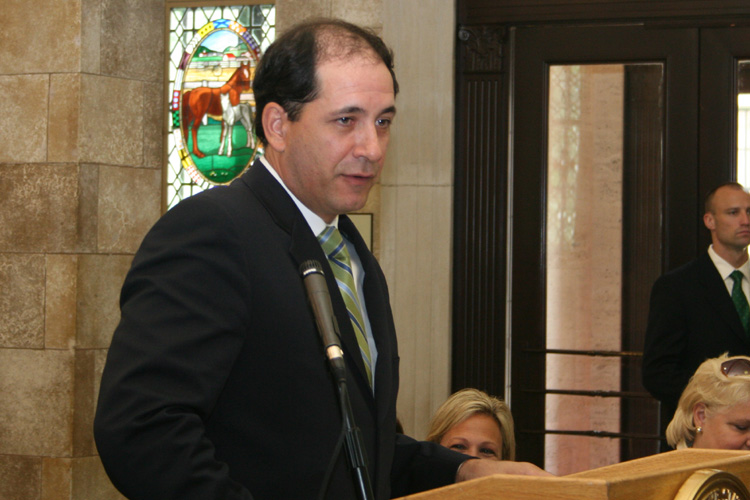
TRENTON – A measure sponsored by Senators Joseph F. Vitale and Loretta Weinberg which would create the Safe Patient Handling Act, and require health care facilities to establish guidelines for safe patient handling was approved today by the Senate Budget and Appropriations Committee.
“This piece of legislation will reduce the risk of injury to both patients and health care workers at the facility,” said Senator Joseph F. Vitale, D- Middlesex, the Chairman of the Senate Health, Human Services and Senior Citizens Committee. “This is a win-win situation for both patients and health care workers. It is imperative that safe patient handling plans be developed, implemented and evaluated. This process will enhance the safety of those who work and those who are cared for in health care facilities throughout New Jersey.”
“This legislation is about establishing guidelines to protect both patients and health care workers. In hospitals, nursing homes and other health care facilities, the risk of injury is always there, especially if a patient is being lifted, repositioned or transported from one location to another;” said Senator Weinberg, D-Bergen, who is a member of the Senate Health panel. “This bill would work to reduce its numbers, while helping to ensure that safety is always key when assisting patients.”
The Senators’ bill, S-1758, would require New Jersey’s hospitals, nursing homes, developmental centers and psychiatric hospitals to establish and implement a safe patient handling program to help protect patients and staff from injury.
Under the bill, facilities would have 12 months to establish a safe patient handling committee, which would in turn be responsible for the development, implementation, evaluation and possible revision of the safe handling program. The evaluation would include annual assessments of patient handling equipment, including electric beds, hoists used to lift patients and bathing assistance devices. The membership of each committee would consist of health care employees and others trained in safe patient handling procedures.
The safe patient handling program would be established for all units and shifts of each facility, and would take into account patient’s physical and mental condition.
The safe handling policy would have to include a statement allowing patients to refuse assistance by facility employees. Facilities would also be required to assess the safety of patient handling and assistive devices.
Health care facilities would have three years from the date of enactment to establish and begin training employees in safe patient handling program guidelines. The facilities would be required to maintain a detailed description of the program and its components, and to submit a copy to the Department of Health and Senior Services or to the Department of Human Services. A program description would also be made available to health care facility workers. A copy of each facility’s safe patient handling policy would have to be posted in a location easily visible to staff, patients and visitors. Each facility would also have to provide educational materials for patients and their families to help familiarize them with the safe handling program.
Facilities would be required to make recommendations for a three-year plan to purchase additional patient handling equipment that meets the safe handling guidelines.
This bill was unanimously approved by the Senate Health panel on December 14, 2006. It now heads to the full Senate for a vote.

